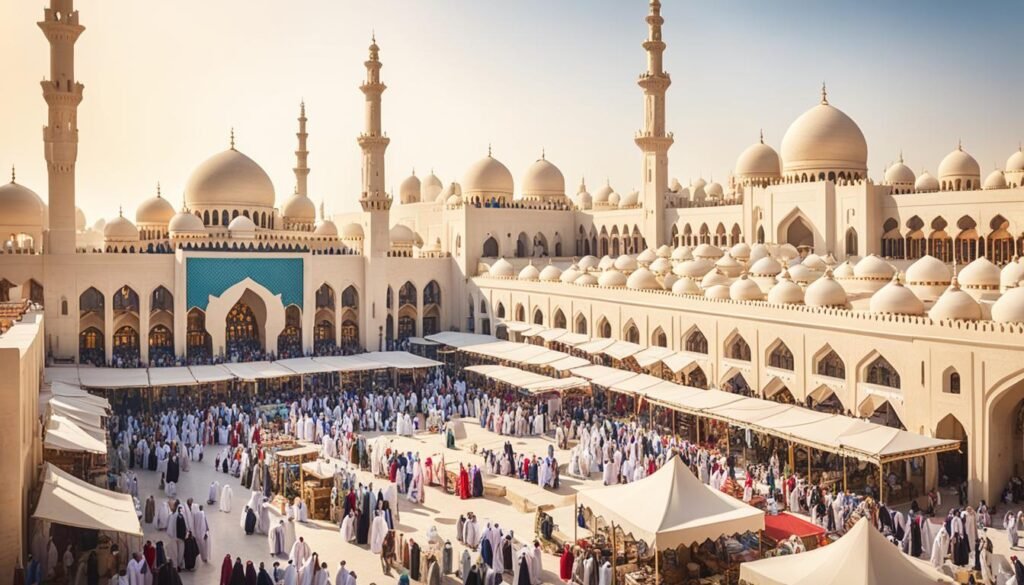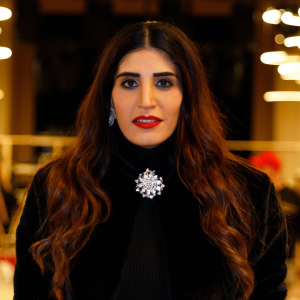In a country as fast-growing and modern as the UAE, it might surprise you how deeply the roots of the past continue to flourish. Amid the towering skyscrapers and luxury malls, the traditions of oral history and folklore are not only remembered—they are actively preserved, performed, and passed down with pride.
The UAE’s oral heritage is a treasure chest filled with poetic verses, ancestral tales, proverbs, riddles, songs, and legends, shared around campfires, at family gatherings, and now—on stages, podcasts, and classrooms. These stories are more than entertainment. They are carriers of identity, values, and wisdom.
Here’s how the UAE ensures its ancient voices are never lost in the noise of modernity.

Why Oral History Matters
Long before libraries and archives, history in the Gulf was remembered through the *spoken word. For Bedouin tribes in the desert and pearl divers by the sea, *storytelling was how generations survived, bonded, and made sense of the world around them.
Oral history in the UAE does more than recall the past—it shapes how the present is understood. It teaches about honor, resilience, hospitality, courage, and faith. It connects young Emiratis to their ancestors, turning abstract history into living memory.

Al Hakawati: The Traditional Storyteller
In Emirati tradition, Al Hakawati was the keeper of tales—the one who memorized, dramatized, and shared stories from the past. These storytellers were often well-respected elders or poets, weaving narratives about legendary battles, epic love stories, or the creation of villages and customs.
Even today, during national events or festivals, you’ll find men and women retelling these tales in majlis gatherings, often dressed in traditional attire, their voices rising and falling like the desert wind.
Some classic forms include:
- Sard Al Hikaya – narrative storytelling
- Al-Razfa and Al-Ayyala – poetic performances with dance and music
- Folk riddles and sayings – passed down through generations
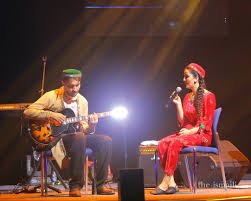
Poetry as Memory: The Role of Nabati
Poetry in the UAE is more than art—it’s the *language of memory. Especially in *Nabati poetry, often called “the people’s poetry,” history and emotion are preserved in lyrical form. Known for its heartfelt themes—love, honor, homeland—it was a favorite medium among Bedouins.
The late Sheikh Zayed bin Sultan Al Nahyan himself was an accomplished Nabati poet, and his verses continue to inspire national identity. Today, *poetry competitions and festivals, such as *Million’s Poet, keep this tradition not only alive but popular among youth.
Women as Storytellers and Cultural Custodians
Women in Emirati culture have long been the unsung narrators of oral history. Through lullabies, folk songs, embroidery patterns, and cooking rituals, women passed down values, beliefs, and hidden histories of family life.
In family settings, mothers and grandmothers are often the first to teach children proverbs, riddles, and songs, especially during:
- Gargee’an celebrations
- Weddings and childbirth rituals
- Evening gatherings with tea and sweets
Their contributions are now being formally recorded and honored, especially by women-led cultural preservation initiatives.
Preserving Oral History in a Digital World
As the UAE embraces technology, its approach to preservation has evolved. Institutions like *the Department of Culture and Tourism – Abu Dhabi, **Sharjah Heritage Institute, and *Al Oula Radio are recording oral histories in both audio and video formats to safeguard them for future generations.
Key initiatives include:
- Heritage festivals like Al Dhafra Festival and Sharjah Heritage Days
- Interactive museum exhibits with digital storytelling corners
- National Archives oral history projects documenting elder testimonies
- Podcasts and YouTube channels focusing on Emirati culture
These modern platforms allow the stories of pearl divers, falconers, midwives, and soldiers to reach wider audiences—without losing their original voice.
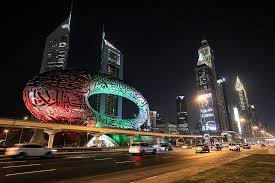
Folklore in Festivals and Education
Cultural festivals are one of the UAE’s most joyful ways to celebrate and share its oral history. Events like:
- Liwa Date Festival
- Al Ain Traditional Handicrafts Festival
- Qasr Al Hosn Festival
bring together elders, performers, and artisans who showcase their skills and tell their stories in person—making learning interactive and fun.
Even *schools are joining the mission, including oral storytelling in Arabic language curriculums and inviting elders to share folk tales and songs with students. These experiences create a *cultural bridge between generations.
Popular Emirati Folktales and Legends
Some stories have been told for centuries and remain favorites among Emiratis today:
- Um Al Duwais – A beautiful but deadly female spirit who warns against vanity and greed
- Bu Darya – A sea monster said to haunt pearl divers
- Al Jathoom – The shadowy figure of sleep paralysis, tied to moral and spiritual lessons
- The Wise Bedouin Leader – Tales of leadership, wit, and tribal unity
These tales often carry moral lessons while reflecting the realities of desert life, fishing villages, and pre-oil society.
Challenges and Hopes for the Future
Like all oral traditions, UAE folklore faces modern pressures—urbanization, globalization, and changing family structures can weaken the transmission of cultural knowledge.
But hope lies in the growing cultural pride among young Emiratis. With state support and increased public interest, more people are realizing that to know their future, they must first embrace their past.
Storytelling is no longer just a nostalgic ritual—it’s a national movement.
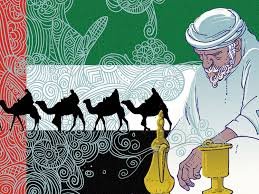
Final Thoughts: Voices That Never Fade
The UAE’s efforts to preserve its oral history are not about looking back with longing—they’re about moving forward with roots. In a world that changes fast, these stories offer stillness, identity, and truth.
From the soft recitation of a Nabati verse to the playful guessing of a folk riddle at a majlis, oral history remains the heartbeat of Emirati culture.
As long as there are ears to listen and voices to speak, the stories of the UAE will never be lost—they’ll simply evolve, echoing across the dunes and into the digital age.
Follow us on Instagram: UAE STORIES
Explore the Most Stunning Mosques in the UAE and the Spiritual Beauty of Islamic Architecture

